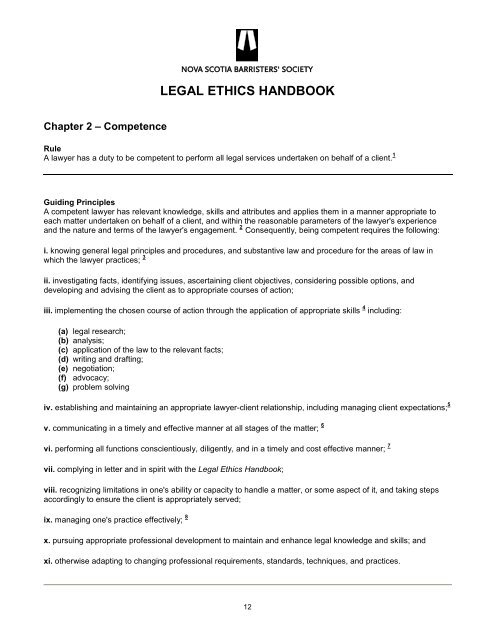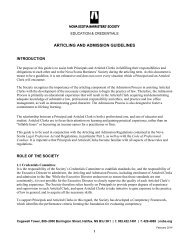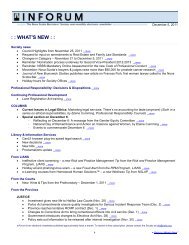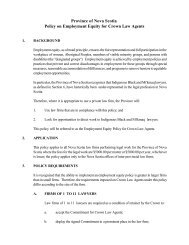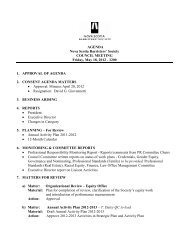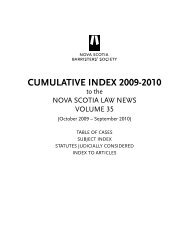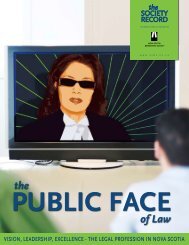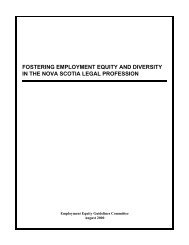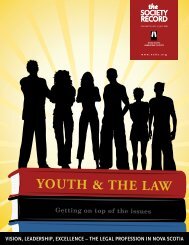legal ethics handbook - Nova Scotia Barristers' Society
legal ethics handbook - Nova Scotia Barristers' Society
legal ethics handbook - Nova Scotia Barristers' Society
You also want an ePaper? Increase the reach of your titles
YUMPU automatically turns print PDFs into web optimized ePapers that Google loves.
Chapter 2 – Competence<br />
LEGAL ETHICS HANDBOOK<br />
Rule<br />
A lawyer has a duty to be competent to perform all <strong>legal</strong> services undertaken on behalf of a client. 1<br />
Guiding Principles<br />
A competent lawyer has relevant knowledge, skills and attributes and applies them in a manner appropriate to<br />
each matter undertaken on behalf of a client, and within the reasonable parameters of the lawyer's experience<br />
and the nature and terms of the lawyer's engagement. 2 Consequently, being competent requires the following:<br />
i. knowing general <strong>legal</strong> principles and procedures, and substantive law and procedure for the areas of law in<br />
which the lawyer practices; 3<br />
ii. investigating facts, identifying issues, ascertaining client objectives, considering possible options, and<br />
developing and advising the client as to appropriate courses of action;<br />
iii. implementing the chosen course of action through the application of appropriate skills 4 including:<br />
(a) <strong>legal</strong> research;<br />
(b) analysis;<br />
(c) application of the law to the relevant facts;<br />
(d) writing and drafting;<br />
(e) negotiation;<br />
(f) advocacy;<br />
(g) problem solving<br />
iv. establishing and maintaining an appropriate lawyer-client relationship, including managing client expectations; 5<br />
v. communicating in a timely and effective manner at all stages of the matter; 6<br />
vi. performing all functions conscientiously, diligently, and in a timely and cost effective manner; 7<br />
vii. complying in letter and in spirit with the Legal Ethics Handbook;<br />
viii. recognizing limitations in one's ability or capacity to handle a matter, or some aspect of it, and taking steps<br />
accordingly to ensure the client is appropriately served;<br />
ix. managing one's practice effectively; 8<br />
x. pursuing appropriate professional development to maintain and enhance <strong>legal</strong> knowledge and skills; and<br />
xi. otherwise adapting to changing professional requirements, standards, techniques, and practices.<br />
12


